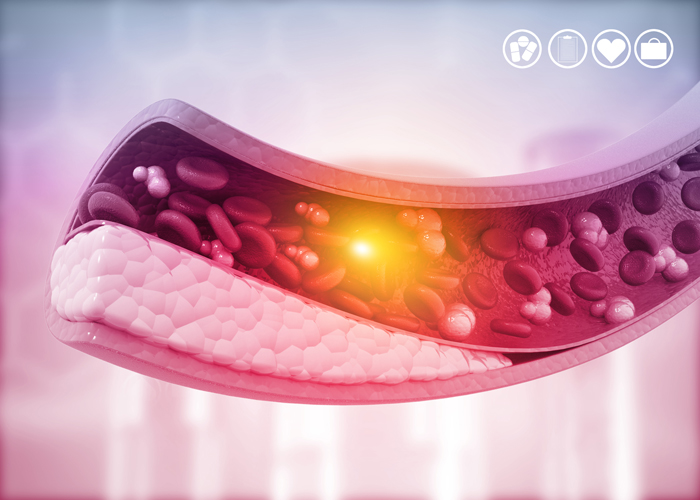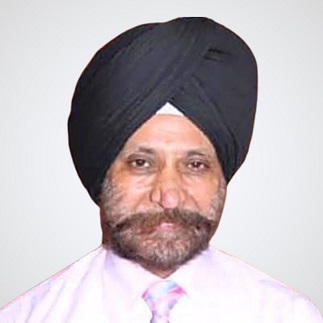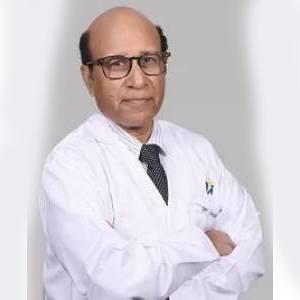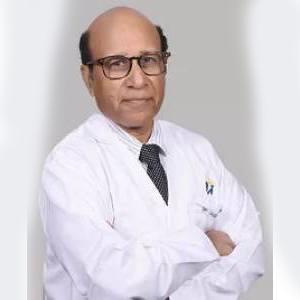Deep Vein Thrombosis Treatment in Karol Bagh, Delhi
Introduction
Deep vein thrombosis is also known as DVT and is a severe condition that happens when a blood clot which is also known as a thrombus, gets formed in a deep vein present in the body. A blood clot occurs when a lump of blood gets collected in a part of the body and becomes solid. This can happen in one vein or multiple veins together. These blood clots are more commonly formed in the veins of the legs, usually on the inside of the thigh or the lower portion. They can also develop in other parts of the body. These thrombi or clots can then result in pain and swelling. In some cases, they might grow and exhibit no particular symptom. For further information, look for deep vein thrombosis surgery in hospitals near you.

What are the Symptoms of Deep Vein Thrombosis?
In most cases, deep vein thrombosis may not have any symptoms. However, if you do experience symptoms, they may be as follows.
- Swelling in one leg
- Pain in the legs
- Cramping
- Soreness in legs
- Swollen or raised veins
- Feeling of warmth around the legs or the affected veins
- Blue-ish or red-colored veins
What are the Causes of Deep Vein Thrombosis?
Deep Vein Thrombosis occurs when you face some medical condition that can change the way your blood starts its clotting process. A blood clot can also be a result of long-term immobility. For example, if you had leg surgery or an accident that resulted in bed rest, and hence you can’t move your leg, you might develop deep vein thrombosis. Some other common causes of deep vein thrombosis include:
- Damage to a vein or blood vessel
- Damage to the wall of the blood vessel
- Consumption of specific medication that can lead to clot formation
When Should You See a Doctor?
Suppose you develop any of the symptoms mentioned above; you should see a doctor. If you have any breathing problems or coughing blood, you should treat it as an emergency and contact a doctor immediately. For further information, look for deep vein thrombosis surgery specialists near you.
Request an appointment at Apollo Spectra Hospitals, Karol Bagh, New Delhi
Call 1860 500 2244 to book an appointment
Treatment
Treatments are as follows.
- Medication: Before any other treatment, the doctor will prescribe you some medicines. You will be given blood thinners. These will help reduce the density of your blood and reduce the risks of blood clots. They don’t affect an existing blood clot, but they don’t let it increase in size.
- Compression Stockings: The purpose of these stockings is to apply constant pressure on the leg. This continuous pressure helps increase the efficiency of blood circulation in the legs and helps avoid blood clotting. It also helps in reducing swelling.
- Filters: If for specific reasons, you can’t take the medicine, a filter might be inserted in the biggest vein of your body, the vena cava. If a blood clot breaks, the filter will prevent it from reaching the lungs and blocking the blood flow.
- DVT surgery: The surgery is recommended in sporadic cases. Only when the blood clot is large enough to cause tissue damage or any other complications will the doctor suggest surgical removal. The surgeon will make an incision in the vein or the blood vessel in the surgery, carefully remove the blood clot, and then repair the vein or the vessel.
Request an appointment at Apollo Spectra Hospitals, Karol Bagh, New Delhi
Call 1860 500 2244 to book an appointment
Conclusion
Deep vein thrombosis is a severe condition as the developed blood clots can break at any time. The breaking of the blood clot might result in them traveling through your bloodstream and reaching the lungs and, in turn, blocking the flow of the blood. Hence, it is necessary to get proper treatment for this condition. For further information, contact Deep Vein Thrombosis Surgery Doctors near Karol Bagh for more details.
A DVT surgery takes about 2 to 3 hours.
Pulmonary Embolism is the most severe complication of DVT. Some other complications can arise during the surgical procedure, like bleeding or damage to the blood vessels.
If left unchecked, 1 out of 10 people with DVT develops Pulmonary Embolism. In pulmonary embolism, the blood clot can break and lead to breathing problems.
Symptoms
Our Doctors
DR. GULSHAN JIT SINGH
MBBS, MS (General Su...
| Experience | : | 49 Yeras Experience |
|---|---|---|
| Speciality | : | Vascular Surgery... | Location | : | Chirag Enclave |
| Timings | : | Tue, Fri: 2:00 PM to... |
DR. JAISOM CHOPRA
MBBS, MS, FRCS...
| Experience | : | 38 Yeras Experience |
|---|---|---|
| Speciality | : | Vascular Surgery... | Location | : | Chirag Enclave |
| Timings | : | Mon - Sat : 2:00 PM ... |
DR. JAISOM CHOPRA
MBBS, MS, FRCS...
| Experience | : | 38 Yeras Experience |
|---|---|---|
| Speciality | : | Vascular Surgery... | Location | : | Karol Bagh |
| Timings | : | Thur : On Call... |
Our Top Specialities
NOTICE BOARD
CONTACT US
CONTACT US
 Book Appointment
Book Appointment





.svg)
.svg)
.svg)
.svg)








